
-
Find the right food for your petTake this quiz to see which food may be the best for your furry friend.Find the right food for your petTake this quiz to see which food may be the best for your furry friend.Health CategoryFeatured products
 Adult Perfect Weight & Joint Support Chicken & Brown Rice Recipe Dog Food
Adult Perfect Weight & Joint Support Chicken & Brown Rice Recipe Dog FoodThis weight management and mobility support dog food was created with Hill’s unique understanding of the biology of overweight dogs.
Shop Now Adult Perfect Digestion Chicken, Barley & Whole Oats Recipe Dog Food
Adult Perfect Digestion Chicken, Barley & Whole Oats Recipe Dog FoodScience Diet's breakthrough nutrition supports ultimate digestive well-being & healthy microbiome
Shop Now Hill's Science Diet Adult Healthy Mobility Large Breed Chicken Meal, Barley & Brown Rice Recipe Dog Food
Hill's Science Diet Adult Healthy Mobility Large Breed Chicken Meal, Barley & Brown Rice Recipe Dog FoodAdvanced nutrition shown to support joint health and improve mobility
Shop NowFeatured products Adult Healthy Cuisine Roasted Chicken & Rice Medley Cat Food
Adult Healthy Cuisine Roasted Chicken & Rice Medley Cat FoodDelicious roasted chicken and rice in a mouthwatering sauce
Shop Now Adult Perfect Digestion Chicken, Barley & Whole Oats Recipe Cat Food
Adult Perfect Digestion Chicken, Barley & Whole Oats Recipe Cat FoodHill's Science Diet's breakthrough nutrition supports ultimate digestive well-being & healthy microbiome
Shop Now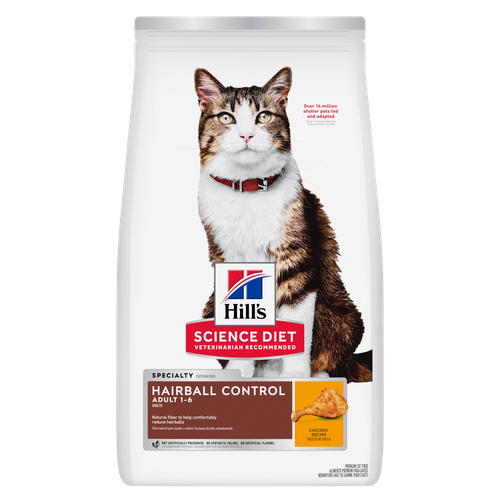 Adult Hairball Control Chicken Recipe Cat Food
Adult Hairball Control Chicken Recipe Cat FoodNatural fibre comfortably reduces hairballs
Shop Now -
DogCat
- Cat Tips & Articles
-
Health Category
- Weight
- Skin & Food Sensitivities
- Urinary
- Digestive
- Kidney
- Dental
- Serious Illness
-
Life Stage
- Kitten Nutrition
- Adult Nutrition
Featured articles The Incredible Science Behind Your Pet's Microbiome
The Incredible Science Behind Your Pet's MicrobiomeLearn what a pet's microbiome is, how it contributes to your pet's gut & overall health, and why nutrition is important in maintaining healthy microbiomes.
Read More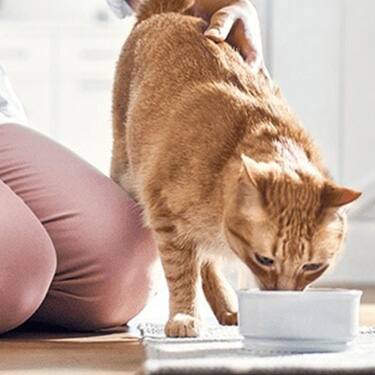 Show some love with wet foods: a great choice for pets with health issues
Show some love with wet foods: a great choice for pets with health issuesShow some love with wet foods: a great choice for pets with health issues.
Read More Water
WaterWater is the most important nutrient of all and essential for life. Animals can lose almost all their fat and half their protein and still survive, but if they lose 15% of their water, it will mean death.
Read More -


Urinary blockage is a painful and life-threatening condition that typically affects male cats. If your male cat has urinary blockage, it means their urethra — the tube that drains urine from the bladder to the penis and out of the body — is blocked by inflammatory material. When the urethra is blocked and urine can't exit the body, the bladder becomes overfilled or "hyperextended". And if the blockage goes on too long, the kidneys may start to swell and become damaged, leaving the bladder to potentially rupture or tear.
Male cat urinary blockage is extremely common, especially among neutered male cats; therefore, it's critical for pet parents to know the signs of the condition. The sooner a cat receives proper treatment, the more likely they are to have a healthy recovery.
Causes of Male Cat Urinary Blockage
Neutered male cats are especially prone to urinary blockage because they have may narrow urethras — so narrow that involuntary urethral muscle spasms can block the flow of urine. A male cat's urethra can also become blocked by small urinary stones or by urethral plugs: a mixture of cells that are used to line the bladder, mucus and crystals formed from minerals in the urine. Additional causes of urinary blockage are from feeding foods high in magnesium or the presence of an underlying condition called feline idiopathic cystitis (FIC).
Signs and Diagnosis of Male Cat Urinary Blockage
The most common sign of what veterinarians call a "blocked cat" is going to the litter box to urinate, getting into position and having nothing come out. Your cat may also seem uncomfortable or yowl when trying to urinate. If the blockage continues, your cat will develop an electrolyte imbalance, which can result in a depressed or altered mental state, vomiting and a slow heart rate. They may also hide or avoid human contact.
The veterinarian will diagnose your cat based on their medical history, a physical examination, blood and urine tests and, possibly, an abdominal X-ray or ultrasound. If they suspect that your cat has a bladder infection, the vet may submit a urine sample for culture.
Treating Urinary Blockage
If your cat has urinary blockage, they should be hospitalized immediately for emergency treatment. The veterinary staff may place an intravenous catheter to deliver fluids and medicine to your cat. Your cat will then be sedated and a urinary catheter will be placed to relieve the obstruction and empty their bladder. The catheter is then left in place for several days to let the urethra heal and let your cat recover. Most blocked cats are hospitalized for several days.
Once your cat is urinating normally, you'll be able to bring them home. The vet will likely prescribe them antibiotics, pain medicine and/or medicine to relax the urethra, as well as recommend a therapeutic food formulated for urinary health.
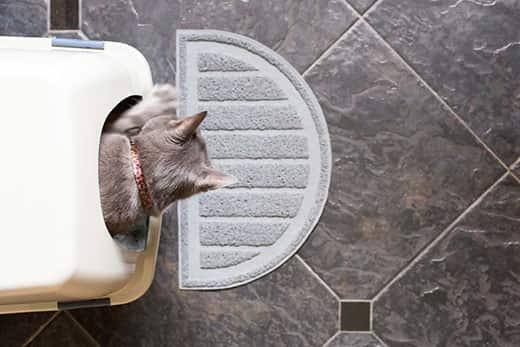


Tasty Tips
Preventing Male Cat Urinary Blockage
Unfortunately, once a male cat has a urinary blockage, there's a higher risk of it happening again. At the first sign of urinary issues, you should have a conversation with your vet about selecting proper nutrition to better support your cat's urinary health to reduce the risk of recurring issues. In highly recurrent cases it's also possible for your vet to suggest a cat urethrostomy — a surgery that creates an opening in the urethra above the blockage to allow for normal urine drainage.
Water consumption is an important part of flushing debris from your cat's system and preventing blockage; try offering them water from a drinking fountain instead of a bowl, flavoring a second water bowl with some tuna juice and switching them to canned food if they currently eat dry food.
Nutrition can also play an important role in preventing blockage. If your cat already experiences urinary health issues, then a therapeutic cat food may help dissolve your cat's crystals or make it less likely they form new ones and maintain a healthy urine pH that contributes to overall urinary health. This food is available through your veterinarian and should be fed under the supervision of a vet; ask your vet if a Prescription Diet cat food might be right for your cat..
The Role of Stress
Another major factor in feline lower urinary tract disease (FLUTD) related conditions is stress, so it is important to consider your cats stress level when evaluating urinary issues. Cats are susceptible to stress-related lower urinary disorders, including cystitis and urethral spasms, which can result in blockage. Reducing a cat's stress may lower their chance of lower urinary tract diseases, including urethral blockage.
Your cat could be stressed if:
- They're bored
- The household has too many cats and they have to compete for resources (i.e., alone time at the litter box or competing for food and water)
- Other cats bully them
- Their litter box is dirty
Sometimes, having out-of-town visitors, moving furniture or renovating can stress a cat out as well. If your cat is having issues with urinary blockage, consider whether there's anything that could be causing them stress, then try to eliminate those stressors. Here are a few tips on how to eliminate stress for your cat:
- Provide your cat with plenty of toys to engage them.
- Make sure to keep at least one more litter box in the home than you have cats, so they can have some privacy to do their business. Make sure to separate these litter boxes throughout the house. Also, be sure to clean the litter boxes daily.
- Also, make sure to have one bowl per cat. Think about it: do you want to share a plate with someone else?
- Provide your cat with a cat perch or condo. Cat's love to be up high where they can see things and it gives them the privacy they want.
- Finally, talk to your vet about certain therapeutic diets that are formulated to manage stress response in cats.
Although urethral blockage is common among neutered male cats, it doesn't have to be a problem for your kitty. Have a conversation with your vet to determine the best line of treatment for your cat.


Dr. Sarah Wooten graduated from UC Davis School of Veterinary Medicine in 2002. A member of the American Society of Veterinary Journalists, Dr. Wooten divides her professional time between small animal practice in Greeley, Colorado, public speaking on associate issues, leadership, and client communication, and writing. She enjoys camping with her family, skiing, SCUBA, and participating in triathlons.
Related products

Hill's Science Diet's breakthrough nutrition supports ultimate digestive well-being & healthy microbiome

Delicious roasted chicken and rice in a mouthwatering sauce

Natural fibre comfortably reduces hairballs

Healthy digestion for easy litter box clean-up
Related articles
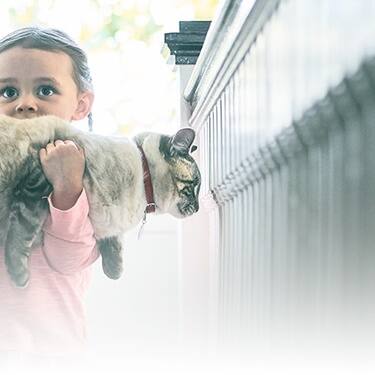
Provide the best possible treatment for cats with sensitive skin by spotting the signs, knowing the causes, and understanding the remedies. Learn more now.
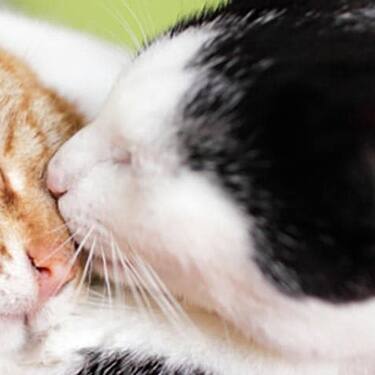
Being overweight puts a cat at risk for developing many serious health issues. Weight gain indicates an increase in body fat and usually results when your cat eats too much and exercises too little.
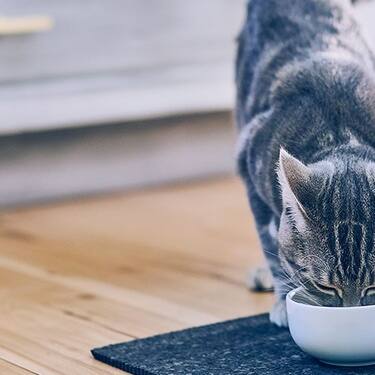
Understand the symptoms of a chronic upset stomach in your cat, and learn how to help sooth their discomfort.
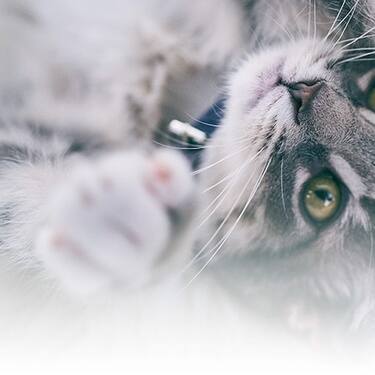
Obesity affects more than 30 percent of cats in America. Learn how you can properly feed and exercise your cat to improve its weight management.

Put your cat on a diet without them knowing
Our low calorie formula helps you control your cat's weight. It's packed with high-quality protein for building lean muscles, and made with purposeful ingredients for a flavorful, nutritious meal. Clinically proven antioxidants, Vitamin C+E, help promote a healthy immune system.
Put your cat on a diet without them knowing
Our low calorie formula helps you control your cat's weight. It's packed with high-quality protein for building lean muscles, and made with purposeful ingredients for a flavorful, nutritious meal. Clinically proven antioxidants, Vitamin C+E, help promote a healthy immune system.

